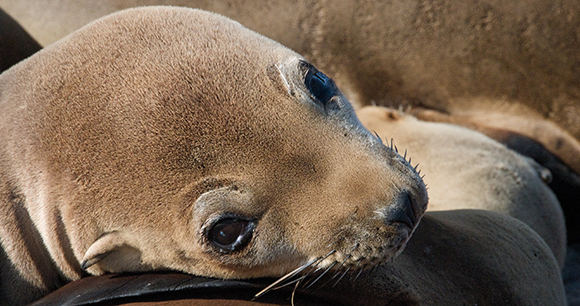
Washington, DC—The Animal Welfare Institute (AWI) is gravely disappointed that President Donald Trump signed legislation yesterday to amend the Marine Mammal Protection Act (MMPA) and allow for the lethal removal of nearly 1,000 sea lions a year.
Immediately after the Senate voted by unanimous consent to pass the Endangered Salmon Predation Prevention Act (S. 3119), the House of Representatives acted quickly to pass the legislation. A House version of the bill, which passed in June, differed in some key respects, but the chamber opted to pass the Senate version without any amendments or objections.
This legislation is premised on the false notion that killing sea lions will save endangered salmon. S. 3119 allows for the indiscriminate killing of nearly 1,000 sea lions a year along the Columbia River Basin and its tributaries. In response, representatives from the Animal Welfare Institute (AWI) issued the following statement:
“AWI has long opposed this legislation on the basis that it does not account for human-caused threats to endangered salmon runs,” said Cathy Liss, AWI president. “The National Oceanic and Atmospheric Administration Fisheries agency lists ‘habitat loss from dam construction and urban development’ as a primary contributor to the decline in Chinook salmon in the region. S. 3119, however, says nothing about dams or development and places all the blame on natural predators.”
In the Columbia River Basin, dams have permanently blocked more than 55 percent of the historic salmon and steelhead spawning habitat. “After altering and limiting access to more than half of their natural spawning habitat, is it any wonder that Chinook are now endangered?” Liss said. “Sea lions did not have any say in the construction of these dams, but now they may be killed because they have learned to take advantage of them. The real solution is to remove some of these dams. Remove the dams, remove the predation problem.”
“Amending the MMPA to increase the number of sea lions that may be killed each year will not result in salmon recovery,” said Dr. Naomi Rose, marine mammal scientist at AWI. “Predator control almost never works and it won’t work here, because the legislation fails to address the fundamental problems we have caused in salmon habitat.”
Fisheries in the region caught an estimated 1.3 million Chinook in 2017. In comparison, between 2013 and 2017, pinnipeds were estimated to have consumed an average of 6,663 salmon per year at the Bonneville Dam—representing between 2.1 and 5.8 percent of the annual adult salmon run.
“This bill undermines the core ethic of the MMPA,” continued Rose. “This precautionary, visionary 1972 environmental statute now includes a provision allowing for a near-open season on one of the species it is supposed to protect.”
Margie Fishman, (202) 446-2128, [email protected]